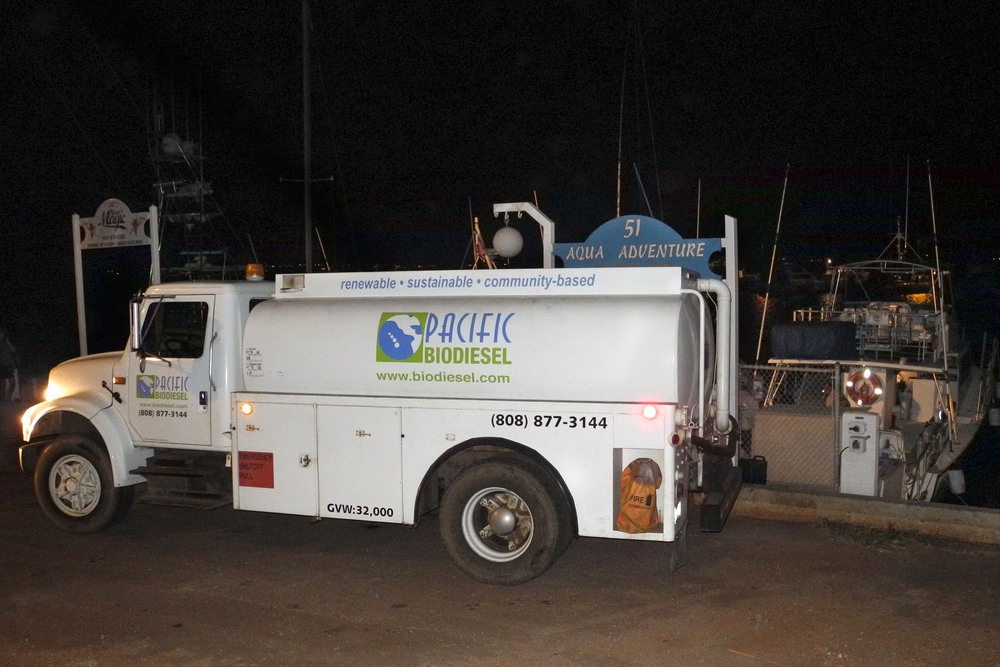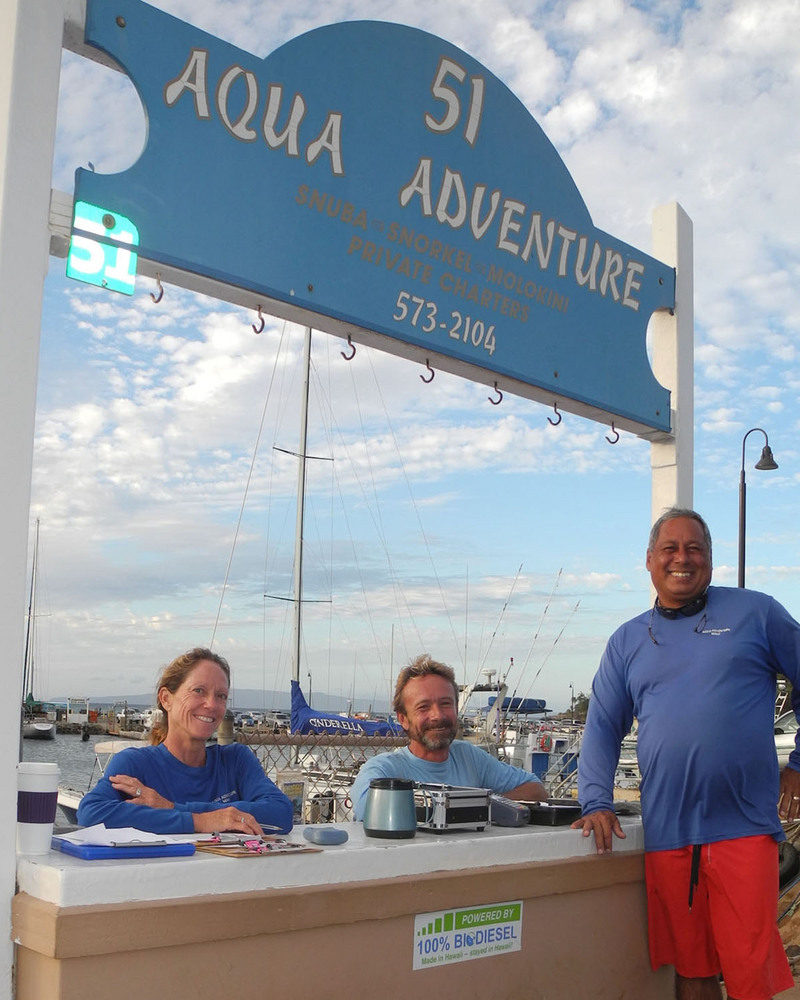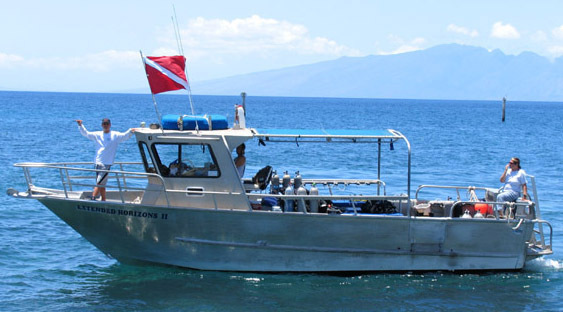New fueling permit brings biodiesel back to Maalaea Harbor





Photo: Pacific Biodiesel
October 17, 2014
BY Pacific Biodiesel Technologies
Divers and crew aboard Aqua Adventures Maui are no longer breathing petroleum exhaust when they begin their diving experience from the swim step of the vessel. In a demonstration of its commitment to recycling and to the environment, the Maui “snuba” company has switched from fossil fuel to 100 percent locally produced biodiesel.
Pacific Biodiesel has been producing biodiesel in Hawaii since 1996 and had delivered fuel to boats in Maalaea Harbor many years ago, but greater on-road demand on the company’s limited production made it hard to keep up with boat companies’ needs. Aqua Adventures had been using biodiesel previously and is the first boat company to fuel with Pacific Biodiesel under the new permit.
Advertisement
“Now that we have the larger capacity, and advanced technology that produces the highest quality biodiesel in America, we are expanding into high-value tourism markets with customers who care about the environment and want to attract ecoconscious visitors to their activities,” said Bob King, president and founder of Pacific Biodiesel. “The marine industry should be first and foremost about protecting the ocean and delivering a healthier experience for ocean-goers.”
Biodiesel is a cleaner-burning, renewable alternative fuel produced in Hawaii from recycled waste vegetable oil. Biodiesel is safe for all diesel engines and has been registered with the U.S. EPA as a fuel and a fuel additive. It can be used pure, as Aqua Adventures Maui is now doing, or blended at any percentage with petroleum diesel. Even in a 20 percent blend, as used by Maui Disposal and many large fleets in Hawaii, there are significant emission reductions.
According to the National Biodiesel Board, the 20 percent blend, or B20, provides superior lubrication, equal performance and is biodegradable at twice the rate of No. 2 petroleum diesel, making it an all around better fuel that can even extend the life of diesel engines. Erik Stein, owner of Extended Horizons, has been using B100 in his dive charter boats since 2006 and noted, “The benefits flow to our bottom line as biodiesel burns cleaner than petro diesel, reducing our engine maintenance costs.”
Advertisement
To educate other potential boat customers, Pacific Biodiesel will be holding a Biodiesel Tech Talk at the Maalaea Harbor Ferry Building Oct. 22 from 1-3 p.m. Lunch will be provided and Bob King will present information on Pacific Biodiesel’s new fuel technology and how to integrate biodiesel into marine operations. For more information on the tech talk and to RSVP, contact Beth Mathias.
In addition, Pacific Biodiesel is partnering with UH Maui College on a two-hour class on multiindustry use of biodiesel which will be free and open to the general public. The noncredit course, titled “The Truth About Using Biodiesel,” will include information on how to switch various diesel-powered equipment to biodiesel or biodiesel blends, why warranty issues are no different from current petroleum-based concerns, and the benefits of biodiesel. For more information about the November UHMC class, contact Melanie Stephens.
Related Stories
Neste and FedEx, the world’s largest express cargo airline, have agreed on the supply of 8,800 metric tons (more than 3 million gallons) of blended Neste MY Sustainable Aviation Fuel to FedEx at Los Angeles International Airport (LAX).
Wheels Up Experience Inc. on May 6 announced the launch of its new SAF program, under which Wheels Up will partner with Delta Air Lines to purchase SAF, allowing private fliers to participate regardless of their flight operator or departure airport.
Germany-based Mabanaft on April 17 announced it started to supply SAF to airlines at Frankfurt Airport in January. The company said it will deliver more than 1,000 metric tons of SAF to the airport this year under the European SAF mandate.
easyJet and ATOBA Energy, in partnership with World Fuel Services, announce the signing of a memorandum of understanding for the development of long-term supply of SAF for easyJet’s operations in Europe and the U.K.
EVA Air announced the signing of sustainable aviation fuel (SAF) procurement agreements with three major suppliers: AEG FUELS from the U.S., COSMO Oil Marketing Co. Ltd. from Japan, and Formosa Petrochemical Corp. from Taiwan.
Upcoming Events










